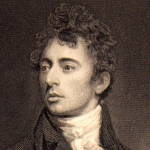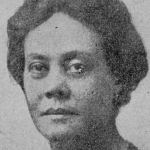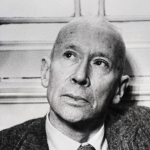You are old, father William, the young man cried,
The few locks which are left you are grey;
You are hale, Father William, a hearty old man,
Now tell me the reason I pray.
In the days of my youth, Father William replied,
I remember'd that youth would fly fast,
And abused not my health and my vigour at first
That I never might need them at last.
You are old, Father William, the young man cried,
And pleasures with youth pass away,
And yet you lament not the days that are gone,
Now tell me the reason I pray.
In the days of my youth, Father William replied,
I remember'd that youth could not last;
I thought of the future whatever I did,
That I never might grieve for the past.
You are old, Father William, the young man cried,
And life must be hastening away;
Now tell me the reason I pray.
I am chearful, young man, Father William replied,
Let the cause thy attention engage;
In the days of my youth I remember'd my god!
And He hath not forgotten my age.


















Comment form: